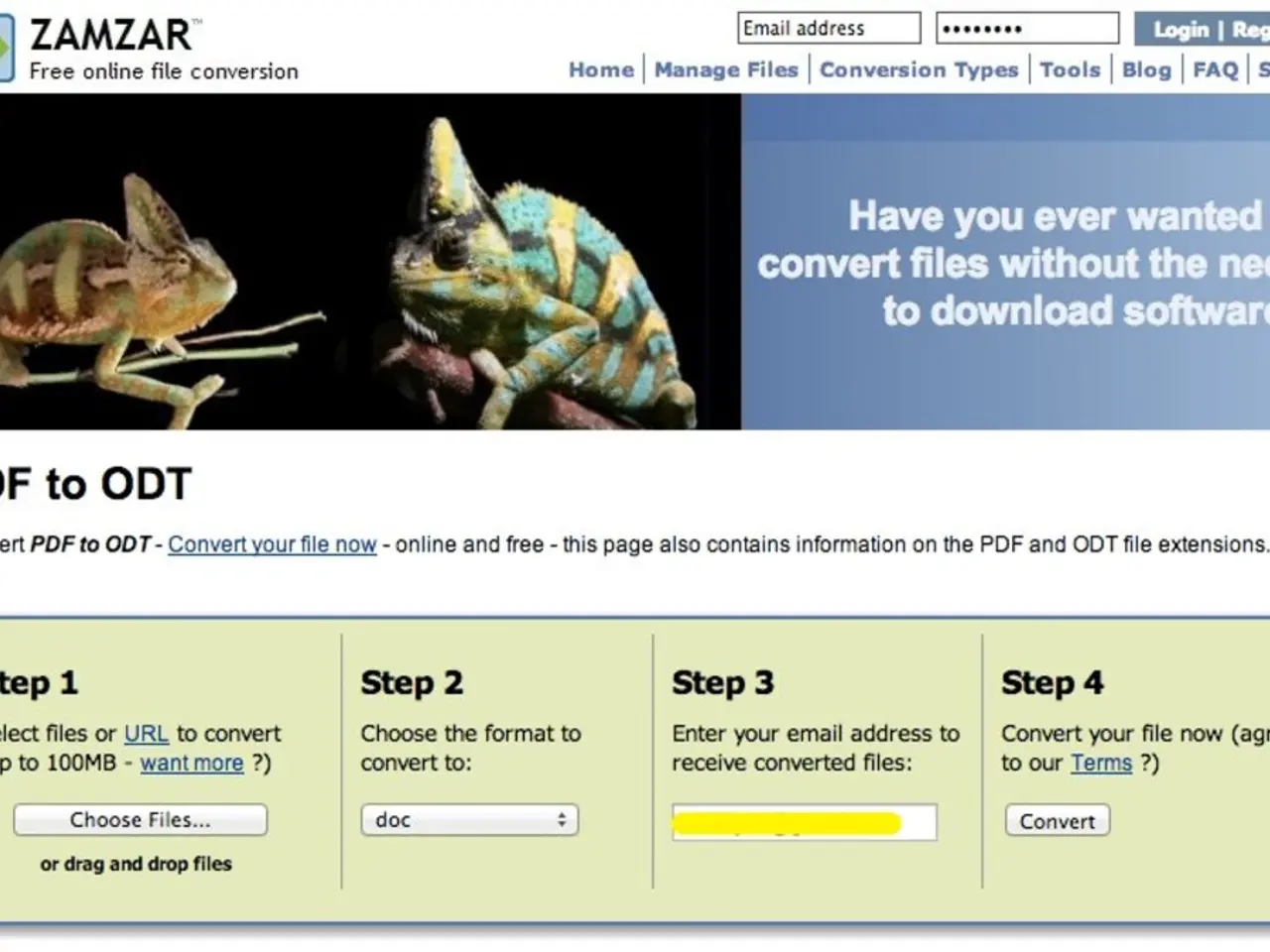Methods for Registering Your Business Label:
Giving Your Business a Legal Edge
Starting a new venture? Creating an unforgettable business name is excitement personified - it's the first impression that sets your brand apart. But turning that name into a legal entity is the backbone of your legacy, guaranteeing your brand's protection and legitimacy. Here's a dose of inspiration and guidance on how to make it happen.
Legalizing Your Business Name 101
Understanding your state's laws on business name registration is crucial to ensure you're playing by the rules. If you're a solo entrepreneur, using your own name requires no extra paperwork. However, if you've chosen a unique name, you'll likely need to register it. A simple business name search tool can help verify its availability.
From Unique Name to Legally Bound
Once your business name is uniquely yours, here are four primary methods to secure its legal status:
- Entity Name
Registering your business name typically occurs when forming an LLC or a corporation. This step makes your business name exclusive, keeping others from using it. If you ever need to change the LLC's name, filing Articles of Amendment with your state regulatory agency will do the trick.
- Trademark
To protect your business name across the nation, consider registering a trademark. Trademarks safeguard your name from use by others in similar industries. A trademark registration service can assist you if you're ready to take this step.
- DBA (Doing Business As)
A DBA allows you to do business under an alternative name without creating a new legal entity. This can be useful for sole proprietors or LLCs with multiple business lines. While DBA registration is less formal than entity name registration, it's still essential to prevent confusion with other businesses.
- Domain Name
Owning a domain name is vital for your online presence. Match your domain name with your business name if possible, but if it's taken, consider variations. Registering your domain name is straightforward and can be done through registrars like GoDaddy.
Remember, legally registering your business name is imperative for your brand's success and legitimacy.
Legally Shining
By utilizing these registration methods, you create a strong, legal foundation for your business identity. For the greatest protection and perks like tax advantages, consider forming an LLC or incorporating. This step not only keeps you compliant with state regulations but also offers financial separation and streamlined management of business expenses.
By taking these steps, you fortify your business name's protection, enhance your brand's reputation, and underpin its legal standing.
Insights: To legally establish and protect your unique business name, a variety of key methods and requirements are at your disposal, depending on the level of protection and legitimacy desired, namely entity name registration, trademark, DBA filing, and domain name registration. Here's a summary:
Registering Your Entity Name (Legal Business Name)
- File formation documents with your state's business filing office (Secretary of State)
- Check name availability in the state's business name database
- Reserve a business name in some states for a limited period
Trademarking Your Business Name
- Apply for a federal trademark with the U.S. Patent and Trademark Office (USPTO)
- Gains exclusive nationwide rights and legal protection over the business name
Filing a DBA (Doing Business As) Name
- A name your business operates under, different from the official legal entity name
- File the DBA with a state or local agency
- May involve a newspaper publication in some states
Registering a Domain Name
- Secures your online presence and identity
- Register domain name via domain registrars (e.g., GoDaddy, Namecheap)
- To ensure your business name's legal exclusivity and avoid conflicts, consider conducting a business name search before formalizing your venture.
- For comprehensive protection of your business name across the country, consider trademark registration, a process that safeguards your name from use by others in similar industries.
- To manage multiple business lines or maintain a distinct identity as a sole proprietor, filing a DBA (Doing Business As) can be beneficial, ensuring you can do business under an alternative name without creating a new legal entity.
- While you need to secure your business name legally for its success and legitimacy, personal-finance planning and career development in the field of entrepreneurship and small-business finance become essential aspects as your business grows.




